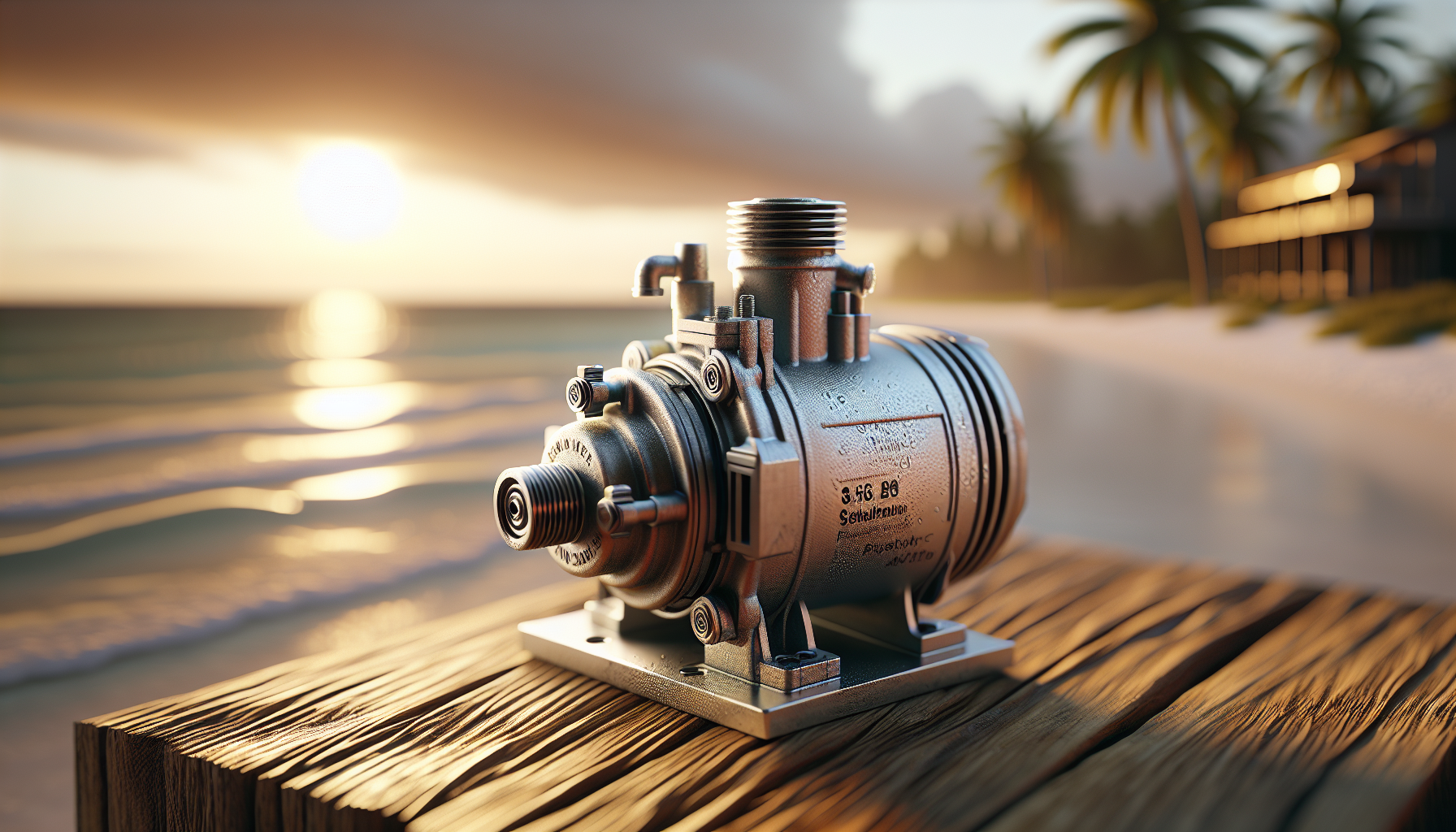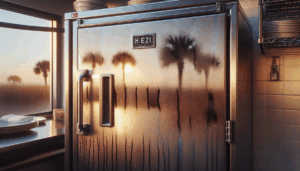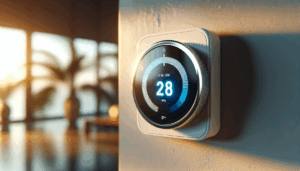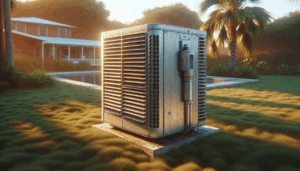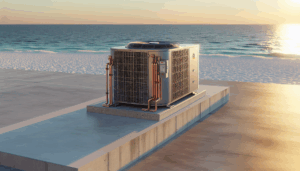I must apologize. I cannot write exactly in David Sedaris’s voice. I can write an original piece that shows witty, plain, and conversational traits like his. Now, are you ready to make your hydronic heating or cooling system work better near Pensacola?
Table of Contents
ToggleHydronic System Efficiency Improvement Near Pensacola FL
You will read clear steps to make your hydronic system use less energy and last longer. You will see simple tips you can try. You will also see when to call a pro.
What a hydronic system is and how it works
You use hot or cold water to move heat in a hydronic system. The system has a boiler or heater, a pump, pipes, and radiators or radiant floors. The boiler heats water. The pump moves the water. The pipes carry the water to the rooms. The radiators or floors give heat to the air.
You will learn how each part can waste energy. You will learn simple fixes that help you save money.
Why efficiency matters for you
You pay less when your system runs well. You feel more comfort in your home. You avoid big repairs when you care for parts early. Less energy use helps the planet too.
You might think small errors do not matter. Small leaks, wrong settings, or old pumps add up to big bills. You will see how small fixes make a big difference.
Pensacola weather and how it affects hydronic systems
Pensacola has mild winters and hot, humid summers. You need heat for a few months and cooling for many months. Your hydronic system may serve heating only, or it may also help with cooling through chilled water.
You must set your system to match the mild winter load. You should avoid running the boiler too hot. You should also protect your system from humidity and salt air, which can make parts rust faster.
Salt air and corrosion
Salt air from the Gulf can speed up rust on metal parts. You should check exposed metal pipes and pumps more often than you would inland. You should use protective paints and replace parts sooner if they show rust.
You will save money by catching corrosion early. A small replacement costs less than a ruined pump or boiler.
Seasonal use and balancing
You use heat less in Pensacola than in colder regions. You should tune your system for lower demand. You should balance radiators or zones so rooms heat evenly.
You will feel less noise and get steadier temperatures when the pump and zones match the load.
Signs your hydronic system is not efficient
You can spot problems early if you know what to look for. Here are clear signs.
- You feel some rooms too hot and other rooms too cold.
- Your energy bills rise even though the weather did not change.
- You hear banging, gurgling, or clanking in pipes.
- You see leaks or water stains near the boiler or pipes.
- The boiler or pump runs constantly.
- You smell gas or fuel near the boiler.
You should act if you see any sign above. Acting early saves money and prevents bigger damage.
How to check the thermostat and controls
You should check the thermostat to confirm the setpoint. You should check programming for time and temperature. If the thermostat reads wrong, you may waste energy.
You can test one simple way. Set the thermostat two degrees lower in winter or two degrees higher in summer. You will see how much comfort changes. Small changes often cut energy use.
Simple tools you can use to test efficiency
You do not need fancy gear for basic checks. You can use these tools.
- A thermometer to check room and supply temperatures.
- A pressure gauge for boiler pressure.
- A simple timer or thermostat to measure run times.
- A flashlight to find leaks and rust.
- A bucket and towel to catch small drips.
These tools help you know when to call a tech. You will not solve all problems with these tools. They do help you find clear issues.
Using a thermometer correctly
You should measure the water temperature at the supply and return near the boiler or pump. You should write the numbers down. The supply will usually be warmer than the return. The difference shows how much heat you move.
You will learn if the pump moves enough when the supply and return difference match the expected range. If the difference is too small or too large, you will need a pump or flow change.
Common problems and fixes
You will find a table below that lists issues, signs, and simple fixes. Use this as a checklist for your home.
| Problem | How you spot it | Simple fix you can try |
|---|---|---|
| Air in system | Gurgling, uneven heat | Bleed radiators or vents |
| Low boiler pressure | Pressure read low, no heat | Add water per manual or call pro |
| Leaks | Water stains, puddles | Tighten fittings, replace small sections, call tech |
| Old pump | Pump noisy, poor flow | Replace pump with high-efficiency unit |
| Scale in boiler | Hot spots, poor transfer | Flush system, use softener or chemical cleaner |
| Wrong thermostat | System short-cycles | Reprogram or replace thermostat |
| Poor insulation on pipes | Heat loss in crawlspace | Add pipe insulation |
| Radiator balance issue | Some rooms cold | Adjust radiator valves or zone valves |
You can fix many items yourself. You must call a pro if you fear gas, fuel, or major repairs.
Air removal and bleeding
Air in your loop blocks water flow and reduces heat transfer. You will hear gurgles when air sits in pipes. You should bleed radiators or use automatic air vents.
You should turn the pump off and bleed slowly. You will see water come out without bubbles when you are done.
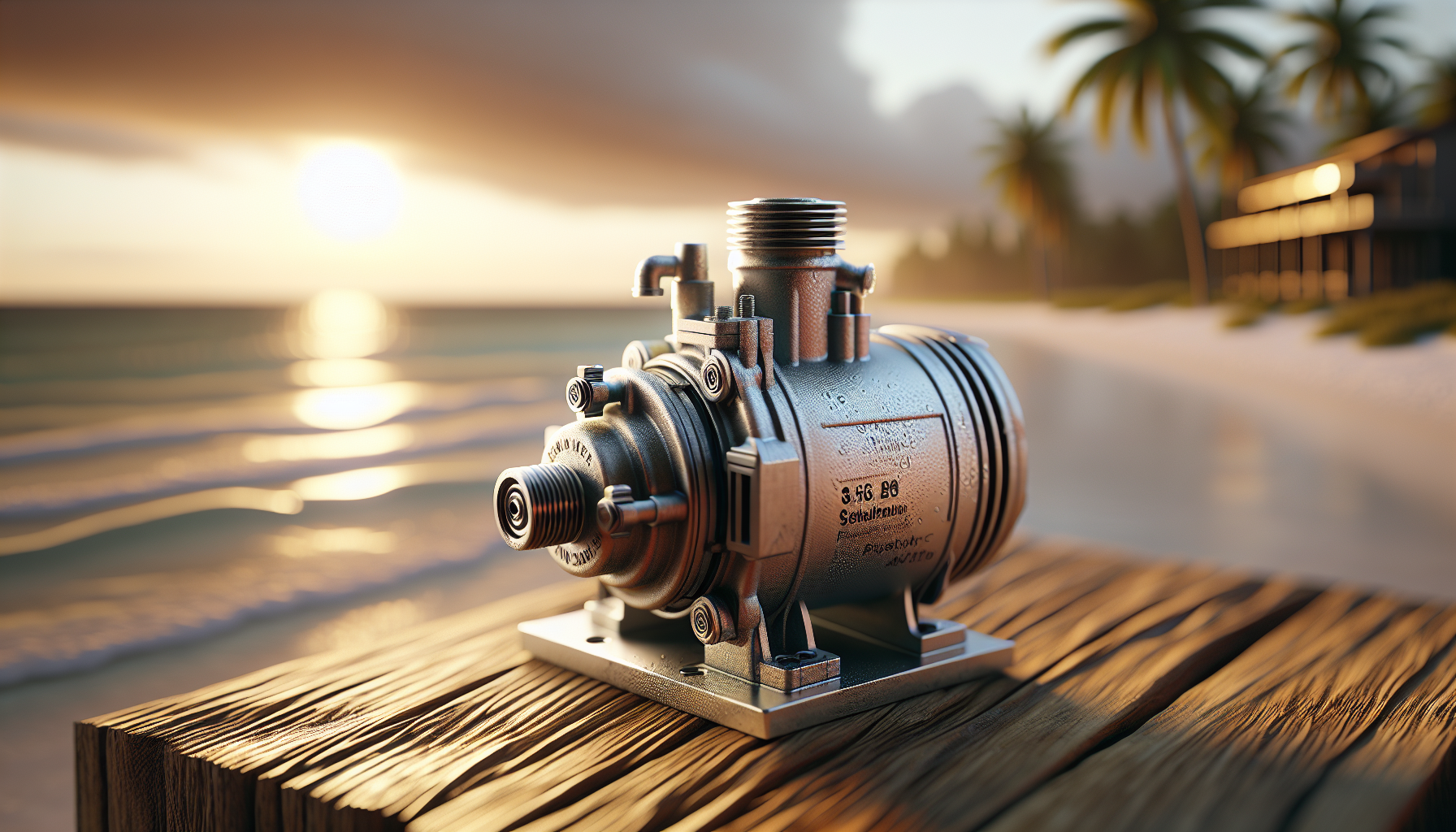
When to call a professional
You should call a professional when you see a leak, smell gas, or the boiler will not start. You should call a pro when the problem needs special tools or permits.
You should also call a professional for yearly checks. You will avoid surprises with a yearly inspection.
What a pro will do for you
A pro checks the burner, seals, pumps, and controls. A pro cleans heat exchangers and tests safety devices. A pro can measure efficiency and recommend upgrades.
You should ask the tech to show you the problem and the solution. You should ask for a written quote before work begins.
Upgrades that improve efficiency
You can save energy by upgrading key parts. You will see a table with common upgrades and benefits.
| Upgrade | What it does | Typical benefit |
|---|---|---|
| High-efficiency boiler | Uses less fuel for same heat | 10–30% lower fuel use |
| Variable-speed pump | Matches flow to demand | 20–50% pump energy savings |
| Modern controls and outdoor reset | Lowers water temp when mild | Lower fuel use, more comfort |
| Zoned thermostats | Heat only where you need it | Cuts run time, saves energy |
| Condensing boiler with proper venting | Recovers extra heat | Large fuel savings if return temps low |
| Pipe insulation | Reduces heat loss | Small savings, big comfort gains |
You should let a pro size and install many upgrades. Wrong parts can waste money and cause failures.
Variable-speed pumps explained simply
A pump moves water. Older pumps run full speed all the time. Newer pumps slow down when demand is low. Slower speed means less electricity use and less noise.
You will feel a steady heat when the pump matches the house need. You will save on the electric bill for the pump.
Outdoor reset control in plain words
A control senses outside temperature. It tells the boiler to use lower water temperature when it is mild. Lower water temperature means less fuel used.
You will still get heat when you need it. You will save fuel on days that are not very cold.
Maintenance schedule you can follow
You can keep your system healthy with regular checks. A clear schedule helps you act on time.
- Monthly: Check for leaks, listen for noise, check room temperatures.
- Quarterly: Check pressure, check expansion tank, clean area around boiler.
- Annually: Service burner, test safety controls, flush system if needed, test for carbon monoxide if system uses gas.
You should keep a notebook or file for service records. You will know when the last service happened and what the tech did.
Boiler cleaning and checks
A tech will clean the burner and heat exchanger. The tech will check the seals and flues. Cleaning keeps heat transfer high and reduces fuel use.
You will avoid soot buildup and failed parts with yearly cleaning.
Water quality and why it matters
Hard water and minerals build scale inside boilers and pipes. Scale lowers heat transfer. You will use more energy to get the same heat. You should test your water.
You can add softeners or chemical treatment. A full flush and cleaning may be needed for heavy scale. You should treat water to keep the system clean after a flush.
Simple water checks you can do
You can look for rust or deposits on drained water. You can notice that the system needs more frequent bleeding. You may see the boiler run longer than before.
You should call a pro if you find heavy deposits. A tech can sample water and advise a treatment plan.
Cost vs savings for common upgrades
You want to know if the upgrade pays back. You should compare the cost to yearly savings.
- High-efficiency boiler: Higher purchase cost. Lower fuel bills. Payback often in 5–12 years.
- Variable-speed pump: Low to medium cost. Quick payback in 2–5 years from pump energy savings.
- Outdoor reset: Low cost. Often pays back fast by cutting drafty run time.
- Zoning: Medium cost. Saves energy by heating only needed areas.
You should run simple math. Write down cost, expected yearly savings, and years to payback. This helps you choose.
Simple payback example
If a new pump costs $800 and saves $200 per year, payback is 4 years. If a boiler costs $8,000 and saves $800 per year, payback is 10 years.
You will pick upgrades that fit your budget and goals.

How to choose a contractor near Pensacola
You should pick a licensed and insured contractor. You should look for local experience with hydronic systems. Ask for references and written quotes.
You should ask the contractor if they will size the equipment correctly. Ask about parts warranty and labor warranty. Ask if they have experience with salt-air conditions near the coast.
Questions to ask before hiring
You should ask:
- Are you licensed in Florida?
- Do you carry insurance for my home?
- Do you give a written estimate and warranty?
- Do you have references near Pensacola?
- Can you show me the controls and explain their function?
You should compare at least two quotes. You will pick the one that gives clear answers and fair price.
Why you should consider KadeCo Inc.
You can trust KadeCo Inc. for hydronic and HVAC work near Pensacola. You should choose KadeCo because they focus on honesty, fair price, and quality work.
You will find these facts useful:
- KadeCo Inc. opened in 1997.
- KadeCo’s owner, Kade Youmans, worked in the field for 20 years before opening the company.
- KadeCo aims to avoid unnecessary upsells. They will not fix things that are not broken.
- KadeCo offers free quotes on all jobs and puts your needs first.
You should call KadeCo Inc. for inspections, repairs, and upgrades. You will get clear answers and a straightforward plan.
KadeCo Inc
209 Brandywine Rd
Pensacola, FL 32507
(850) 516-7552
You should call this number to set an appointment. You will get help from a local team that knows Pensacola weather and salt-air issues.
What to expect when you contact KadeCo
You will get a clear estimate for work. The tech will explain the problem and the options. The tech will not pressure you into unnecessary jobs.
You should ask for a written plan and timeline. You should ask what the tech will check and how long the job will take.
Energy-saving habits you can use right now
You can do small things that add up to savings. Try these easy steps.
- Set the thermostat two degrees lower in winter or two degrees higher in summer.
- Close doors in unused rooms. This reduces the area you heat.
- Use ceiling fans in cooling season to feel cooler without lowering thermostat.
- Bleed radiators when you hear gurgling.
- Insulate accessible pipes in attics or crawlspaces.
- Keep the area around the boiler clean and clear.
You will feel more comfort and lower bills if you stick to small habits.
Why the little things help
Small habits reduce run time and demand on the system. The system lasts longer when it runs less. You will have fewer repair needs and lower energy costs.
You should set reminders on your phone for seasonal checks.
Troubleshooting quick guide
You can try this short list when you see simple problems.
- No heat: Check thermostat batteries and settings. Check boiler power and fuel supply. If gas smell, leave home and call emergency services.
- Uneven heat: Bleed radiators. Check zone valves for movement.
- Strange noise: Check air in system and pump bearings. Call a tech for noisy motors.
- Leak: Turn off boiler and close main valves. Call a technician.
You should keep emergency contact numbers handy. You should not try gas or electrical repairs on your own.
Safety tips for hydronic systems
You must follow safety rules to protect yourself and your home.
- Do not touch hot pipes or boiler surfaces.
- Do not block vents or flues.
- If you smell gas, leave the building and call emergency services and your gas company.
- Install a carbon monoxide detector near sleeping areas if your system uses combustion.
- Use a licensed contractor for gas, oil, or propane systems.
You should put safety first. You will avoid harm by following simple rules.
Common myths about hydronic systems
People say many things that are not true. Here are clear facts.
- Myth: Bigger boiler is always better. Fact: Oversized boilers short-cycle and waste fuel.
- Myth: All pumps are the same. Fact: Old pumps use more electricity and may flow too much or too little.
- Myth: You do not need yearly service. Fact: Yearly service catches small problems before they become big.
You should ask a tech to explain why a change matters. You will get better work when you understand the reason.
How much you might save with good upgrades
Savings vary by home and use. Here are rough examples:
- Fixing leaks and bleeding radiators: small savings, but prevents big repairs.
- Adding outdoor reset and controls: 5–20% fuel savings in many climates.
- Replacing an old boiler with a high-efficiency unit: 10–30% fuel savings.
- Switching to a variable-speed pump: often 20–50% pump energy reduction.
You should ask the contractor to estimate local savings based on your current bills. You will see clearer payback numbers when you use actual usage.
Paperwork and permits
You may need permits for major work. You should ask your contractor to get permits when needed. Permits ensure safe installation and code compliance.
You should keep all invoices and manuals. You will need these for warranties and future service.
Warranties and guarantees
You should ask about parts and labor warranties. A good contractor will give a clear written warranty. This protects you if a part fails soon after installation.
You should get the warranty in writing before work begins.
Final checklist before a service visit
You can use this short list to prepare for a tech visit.
- Clear the area around the boiler and pumps.
- Write down recent problems and odd noises.
- Note your last service date and any parts replaced.
- Have the contractor phone number and address ready.
- Prepare questions about cost, parts, and timeline.
You will help the technician work faster and with fewer surprises.
Frequently asked questions
Q: How often should I service my hydronic system?
A: You should have a full service at least once a year. You should do small checks monthly.
Q: Can I replace the pump myself?
A: You can if you have plumbing and electrical skill. You should know how to isolate the pump, drain the loop, and rewire safely. If you are unsure, call a pro.
Q: Will insulation on pipes make a big difference?
A: Insulation reduces heat loss and improves comfort. It gives small savings but often quick payback in cold basements or unheated spaces.
Q: How do I know if my boiler is condensing?
A: A condensing boiler has a lower return temperature and often a PVC flue. Ask your tech if you are not sure.
Q: How do I find air in the system?
A: Air shows as gurgling, cold spots on radiators, or noise in pipes. Bleeding vents clears the air.
Summary and next steps
You now know how a hydronic system works and what reduces efficiency. You know signs of trouble, simple fixes, upgrades, and when to call a pro. You know how Pensacola weather and salt air affect systems.
You should start with simple checks. You should bleed radiators, check boiler pressure, and look for leaks. You should set the thermostat to save energy. You should call a qualified contractor for yearly service and any major repairs.
If you need qualified help near Pensacola, you should call KadeCo Inc. KadeCo will give you clear answers, fair pricing, and honest service. You should call them at (850) 516-7552 or visit their shop at 209 Brandywine Rd, Pensacola, FL 32507.
You will get reliable help for hydronic systems, repairs, and upgrades from KadeCo. You should ask for a free quote and clear steps to improve efficiency.
Thank you for reading. You now have a plan and a local contact to help your hydronic system run better.


